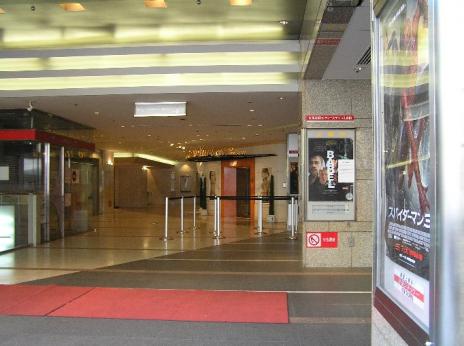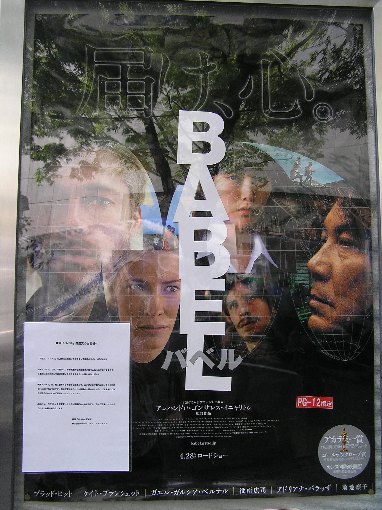JAPAN: The Golden Week in Japan
The Golden week starts on 28 April. The name 'Golden' comes from the film industry.
In 1950s, movie theatres collected a great number of movie fans because there are three holidays around this period: 29 April used to be the Emperor's birth day, May 1 is the Laborers' Day, May 3rd is Constitution Day, and May 5th is Boys Day. Movie industry in Japan is not so prosperous as in 1960s but still producing good films.
Golden Week is time of holidays at the beginning of May at the end of April. We often simplify it as GW.
It often generally becomes a period until April 29th - May 5th though it differs depending on the age.
During this time if we have Saturday or Sunday, this holiday could be longer.
◆ This year
28th April ⇒ Saturday
29th April ⇒ Sunday
Greenery Day or Nature Day, until 2006. It’s called Shōwa Day since 2007
30th April ⇒There is Sunday and national holiday on 29th
In this case, we can rest the next day too. This has been decided in Japan.
1st May ⇒School(Job) Today is May day, but generally we cannot rest. There is a company day off that becomes holiday, too. In Japan, there is movement to start making this day holiday.
2nd May ⇒School(Job)
3rd May ⇒Constitution Memorial Day
Constitution Memorial Day is a national holiday in Japan.
It takes place on May 3 in celebration of the promulgation of the 1947 Constitution of Japan.
4th May ⇒Greenery Day from 2007
5th May ⇒Children's Day
◆ History
The National Holiday Laws, promulgated in July 1948, declared nine official holidays. Since many were concentrated in a week spanning the end of April to early May, many leisure-based industries experienced spikes in their revenues. The film industry was no exception. In 1951, the film "Jiyu Gakkou" recorded higher ticket sales during this holiday filled week than any other time in the year (including New Year's and Obon.) This prompted the managing director of Daiei Films to dub the week "Golden Week" based on the Japanese radio lingo “golden time” which denotes the period with the highest listener ratings.
◆ Current practice
Many Japanese take paid time off on the intervening work days, but some companies also close down completely and give their employees time off. Golden week is the longest vacation period of the year for many Japanese jobs. Two other holidays may also be observed for most or all of a week: Oshōgatsu in January and Obon in August. Golden Week is an extremely popular time to travel. Flights, trains, and hotels are often fully booked despite significantly higher rates at this time. Popular foreign destinations in Asia, Guam, Saipan, Hawaii, and major cities in the U.S. west coast such as Los Angeles, Seattle, and San Francisco), as well as in Europe, are affected during these seasons by large numbers of Japanese tourists.
◆ Problems
・Deterioration of education and work efficiency because of existence at this time
・Excessive congestion of vacation spot, transportation, and festival and event site at this time
◆ Movies in Japan now
It often generally becomes a period until April 29th - May 5th though it differs depending on the age.
During this time if we have Saturday or Sunday, this holiday could be longer.
◆ This year
28th April ⇒ Saturday
29th April ⇒ Sunday
Greenery Day or Nature Day, until 2006. It’s called Shōwa Day since 2007
30th April ⇒There is Sunday and national holiday on 29th
In this case, we can rest the next day too. This has been decided in Japan.
1st May ⇒School(Job) Today is May day, but generally we cannot rest. There is a company day off that becomes holiday, too. In Japan, there is movement to start making this day holiday.
2nd May ⇒School(Job)
3rd May ⇒Constitution Memorial Day
Constitution Memorial Day is a national holiday in Japan.
It takes place on May 3 in celebration of the promulgation of the 1947 Constitution of Japan.
4th May ⇒Greenery Day from 2007
5th May ⇒Children's Day
◆ History
The National Holiday Laws, promulgated in July 1948, declared nine official holidays. Since many were concentrated in a week spanning the end of April to early May, many leisure-based industries experienced spikes in their revenues. The film industry was no exception. In 1951, the film "Jiyu Gakkou" recorded higher ticket sales during this holiday filled week than any other time in the year (including New Year's and Obon.) This prompted the managing director of Daiei Films to dub the week "Golden Week" based on the Japanese radio lingo “golden time” which denotes the period with the highest listener ratings.
◆ Current practice
Many Japanese take paid time off on the intervening work days, but some companies also close down completely and give their employees time off. Golden week is the longest vacation period of the year for many Japanese jobs. Two other holidays may also be observed for most or all of a week: Oshōgatsu in January and Obon in August. Golden Week is an extremely popular time to travel. Flights, trains, and hotels are often fully booked despite significantly higher rates at this time. Popular foreign destinations in Asia, Guam, Saipan, Hawaii, and major cities in the U.S. west coast such as Los Angeles, Seattle, and San Francisco), as well as in Europe, are affected during these seasons by large numbers of Japanese tourists.
◆ Problems
・Deterioration of education and work efficiency because of existence at this time
・Excessive congestion of vacation spot, transportation, and festival and event site at this time
◆ Movies in Japan now
by Ikuyo, Japan


